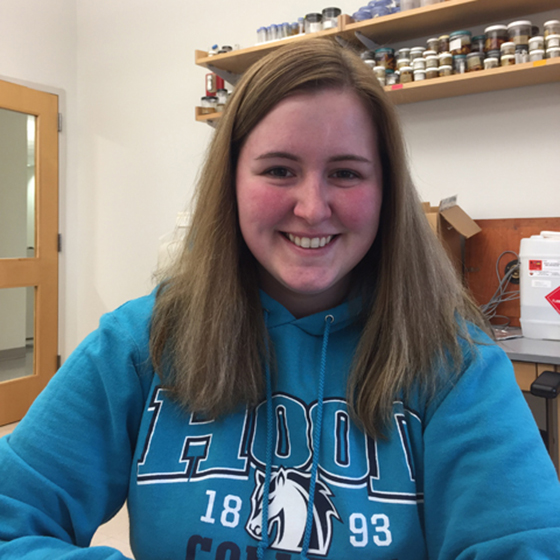A Hood Student and Her Independent Research Experience

Marie Ott-Smith, a Master of Science candidate in Environmental Biology at Hood, is working on an independent research project in partnership with Dr. Drew Ferrier. Her research is focused on the effects of road salt runoff on a local ecosystem. We recently caught up with Marie and the full text of our chat is below.
Marie Ott-Smith
Program
- Environmental Biology (M.S.)
Department
- Biology
Background
I majored in Biology at Albright College in Reading, Pennsylvania and graduated in 2010. I was hired the same year at an environmental consulting firm performing Phase I Environmental Site Assessments (ESAs) for Real Estate and Telecommunications and I have been with them since as a Project Scientist. My interests have always centered on marine and freshwater aquatic environments and the biota that inhabit them.
Why did you choose Hood?
I chose Hood because the programs here are geared towards working professionals. Considering I work full time from home in Harrisburg, PA (a little under 1.5 hours away) while also traveling via airplane at least once a week from the Baltimore airport, I needed a flexible program. The long drive for class and my research have been totally worth it.
What have you enjoyed most about your time at Hood?
Honestly, it’s just nice to be back in a classroom enhancing the knowledge i acquired during my undergraduate education. The variety of class topics I had to choose from made it exciting to see what was going to be available each semester.
Why did you decide on an independent research project?
I chose the independent research track for the hands on experience that I can use in my current job and future career.
What is your independent research focused on?
In 2015, I partnered with Dr. Drew Ferrier and began my Independent Research Project (ENV 579) which focuses on how road salt runoff affects a local ecosystem. I grew algae in Carroll Creek in Baker Park near the Hood campus. In the lab I then exposed the algae to different salinities to determine how the stress affects their photosynthetic ability using a tool called Pam Fluorometry.
Any advice for future graduate students about Hood and about the Environmental Biology program?
Take as many classes as you can to experience all that this program has to offer. Also, do not get disappointed if it takes you longer to complete your program than you envisioned. What is most important is that you will eventually finish. There is no timeline for learning- anyone can enhance their knowledge at any stage of their life.
Are you ready to say Hello?
Choose a Pathway
Information will vary based on program level. Select a path to find the information you're looking for!
